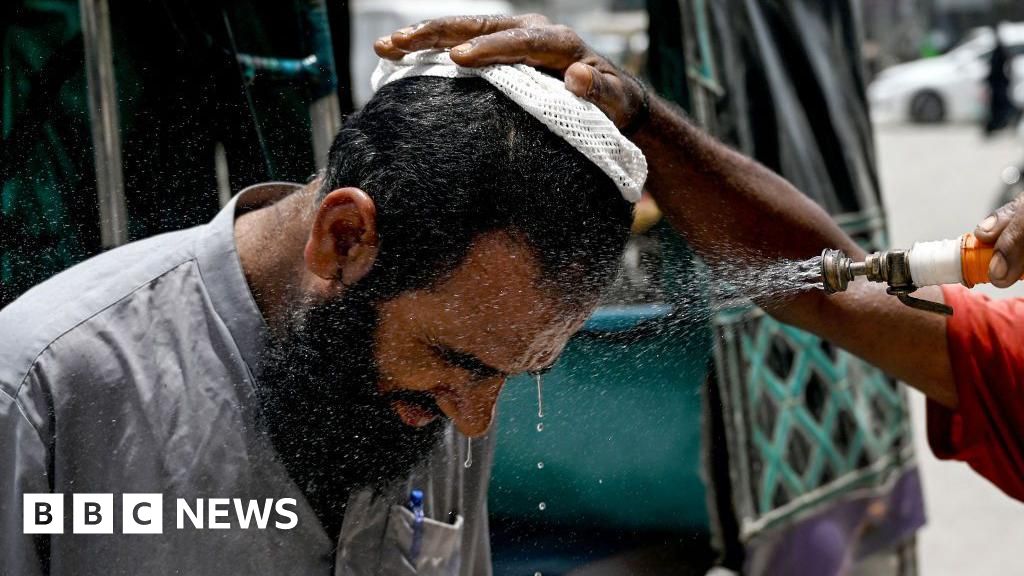- cross-posted to:
- worldnews@lemmy.ml
- climate@slrpnk.net
- cross-posted to:
- worldnews@lemmy.ml
- climate@slrpnk.net
All of this just feels like the start. Good luck out there, everybody. I hope we all make it.
This is the best summary I could come up with:
As the temperatures rose in southern Pakistan, so did the body count.The Edhi ambulance service says it usually takes around 30 to 40 people to the Karachi city morgue daily.But over the last six days, it has collected some 568 bodies - 141 of them on Tuesday alone.It is too early to say exactly what the cause of death was in every case.However, the rising numbers of dead came as temperatures in Karachi soared above 40C (104F), with the high humidity making it feel as hot as 49C, reports said.People have been heading to hospitals seeking help.Civil Hospital Karachi admitted 267 people with heatstroke between Sunday and Wednesday, said Dr Imran Sarwar Sheikh, head of the emergency department.
Twelve of them died.“Most of the people who we saw coming into the hospital were in their 60s or 70s, although there were some around 45 and even a couple in their 20s,” Dr Sheikh told the BBC.Symptoms including vomiting, diarrhoea and a high fever.“Many of those we saw had been working outside.
My clothes are totally drenched in sweat,” Mohammad Imran told Reuters news agency as he struggled to keep cool on Monday.Not all those who needed help made it to hospital.Wasim Ahmed knew he wasn’t feeling well when he arrived home.The 56-year-old security guard had just finished a 12 hour overnight shift outside.
Even then, he had found the temperatures too much.“He came through the door and said I can’t deal with this hot weather,” Adnan Zafar, Wasim’s cousin, told the BBC.
Soon after he finished it, he collapsed.”By the time Wasim’s family got him to hospital, the medics said he had already died of a suspected heart attack.He had an existing heart condition, Adnan says, but he hadn’t suffered in the heat before.Karachi’s struggle to cope with the high temperatures is, some fear, being made worse by regular power cuts which cut off the fans and air conditioning many rely on to keep cool.Muhammad Amin was among those who was suffering with loadshedding - where the electricity supply was cut off; a common practice across Pakistan by the electricity board to try to preserve supply.His relative says their flat experienced consistent constant power cuts.According to his family, Muhammad who was in his 40s suddenly became sick, then died.Cause of death has not been established, but his family suspect it was heat-related.According to Dawn newspaper, almost 30 people have been found dead by emergency services on the city’s streets.Many are suspected drug addicts, Police Surgeon Summaiya Syed told the newspaper, external.
Doctors in the city say they’ve never seen anything like it before.For Karachi resident Mohammad Zeshan, it is clear what the problem is.“This is due to climate change,” he told Reuters.
The original article contains 706 words, the summary contains 452 words. Saved 36%. I’m a bot and I’m open source!
I hope Europe is ready for more immigration
Removed by mod
From what I’ve read, a lot of the people dying are drug addicts
Oh wow what a relief bro, thanks.
I’m not trying to be mean, it’s just informational. These are the people we need to focus on to prevent deaths




